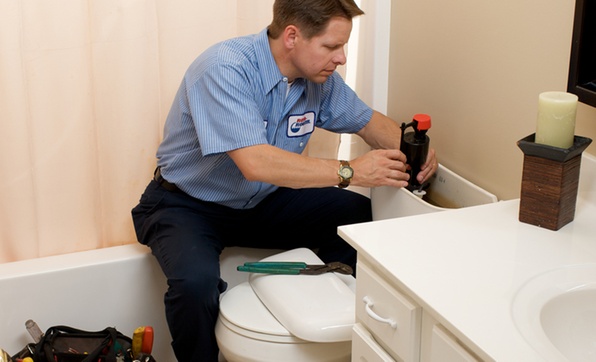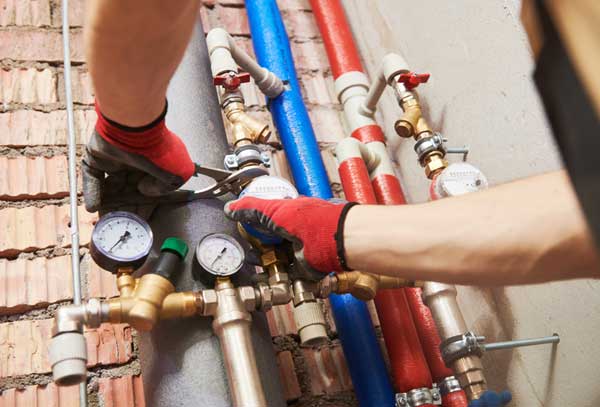New Homeowners: How to Handle Bathroom Plumbing
New Homeowners: How to Handle Bathroom Plumbing
Blog Article
They are making a number of great pointers on the subject of Smart Plumbing Tips for New Homeowners overall in this content in the next paragraphs.

For new property owners, understanding and maintaining bathroom plumbing can conserve both money and time by avoiding pricey concerns down the line. Here are some necessary washroom pipes pointers to help you keep whatever running efficiently.
Acquaint Yourself with the Main Shut-Off Shutoff
Knowing where the primary water shut-off valve lies in your house is important. This enables you to promptly switch off the water in case of major leaks or during pipes emergency situations, protecting against comprehensive water damage.
Regularly Evaluate for Leakages
Tiny leaks can result in large problems. Routinely check under sinks, around toilets, and near plumbing components for any type of indications of leaks. Look for dampness, tiny drips, or rust. Catching and fixing leakages early can stop much more serious damage and save water.
Do Not Overlook Slow Drains Pipes
If your sink or bath tub is draining slowly, it's frequently an indication of a blockage creating. Addressing this very early can protect against a total clog. Use a bettor or a plumbing professional's snake to clean out particles. Prevent utilizing chemical drainpipe cleansers as they can damage your pipes with time.
Know What Not to Flush
Bathrooms are not garbage disposals. Stay clear of flushing anything aside from toilet paper and human waste. Products like wipes, womanly health products, and cotton swabs must be dealt with in the trash to prevent blockages and sewage system backups.
Install Strainers in Drains
Place strainers in your sink and tub drains pipes to catch hair and various other debris before they enter your plumbing system. Cleansing the strainers regularly will aid protect against build-up and keep water flowing openly.
Keep Your Hot Water Heater
Guarantee your water heater is set to a suitable temperature level (commonly around 120 levels Fahrenheit) to stop scalding and minimize energy use. Flush the container yearly to get rid of sediment accumulation, which can reduce the performance and lifespan of your heating unit.
Upgrade Your Components
If your home has older components, think about updating to a lot more efficient models. Modern commodes, showerheads, and taps are made to make use of less water while providing excellent pressure, which can significantly lower your water bill and ecological impact.
Be Cautious with Do It Yourself Plumbing Repair Works
While it's alluring to handle all home repair services by yourself, be cautious with plumbing. Some problems could require expert competence, specifically if they entail major water lines or sewage system repairs. Working with a specialist can often be a lot more cost-effective than do it yourself, particularly if it prevents additional damage.
Get Ready For Cold Weather
Safeguard your pipes from freezing during cold weather by shielding pipelines in unheated areas like basements, attic rooms, and garages. During extreme cool, let cold water drip from taps offered by revealed pipelines to assist protect against cold.
Arrange Routine Maintenance
Take into consideration scheduling yearly assessments with a certified plumbing technician. They can detect issues that you might miss out on, such as concealed leaks or damage on pipes and fixtures. Routine maintenance helps expand the life of your pipes system and can protect against emergency situations.
Final thought
Recognizing and preserving your home's shower room pipes can protect against many common concerns. By adhering to these crucial tips, you can ensure your shower room stays functional and reliable, conserving you time and money over time.
Essential Plumbing Tips for Homeowners: What You Should Know
Plumbing issues can be a nightmare if left unattended, often resulting in costly repairs and significant damage to your home. That's why it's crucial for homeowners to arm themselves with the essential home plumbing maintenance tips and knowledge to prevent such mishaps and maintain the efficiency of their plumbing system.
?Get to know the various aspects of residential plumbing maintenance, from identifying warning signs of potential issues to simple tasks you can perform to keep your plumbing in top condition. By empowering you with the necessary plumbing tips for homeowners in this guide, we will help you tackle everyday plumbing challenges with confidence to keep your home's plumbing system flowing smoothly.
Mastering Home Plumbing Tips
Understanding the basic home plumbing tips allows homeowners to detect issues early on, take prompt action, and prevent them from becoming major headaches. With this proactive approach, homeowners can save both time and money.
Moreover, having a grasp of plumbing basics enables homeowners to communicate effectively with plumbers or other professionals when seeking assistance. Being able to accurately describe the problem and understand the proposed solutions not only streamlines the repair process but also helps homeowners make informed decisions about their plumbing systems.
Whether it's discussing drainage solutions, leaky taps, or fixture installations, a solid understanding of basic home plumbing maintenance tips promotes better collaboration between homeowners and professionals to ensure that repairs or upgrades meet the homeowner's needs and expectations.
Home Plumbing Maintenance Tips
Here are some basic yet essential home plumbing tips to keep your plumbing in its tip-top shape:
Be Cautious During Renovations
When renovating your home, be mindful of the location of pipes to avoid accidentally damaging them. Plan your renovations carefully and, if unsure, consult a professional plumber to help identify potential hazards.
Avoid Flushing Trash Or Wipes Down Drains
Flushing items like wipes, sanitary products, or paper towels down the toilet can lead to clogs and damage to your plumbing system. Dispose of these items properly in the trash.
Know The Location Of The Water Mains Cut-Off
In case of a plumbing emergency, such as a burst pipe, knowing the location of the water mains cut-off valve can help minimise damage by quickly shutting off the water supply to your home.
Avoid Chemical Drain Cleaners
Chemical drain cleaners can damage pipes and harm the environment. Instead, use natural alternatives like a mixture of baking soda and vinegar or get help from a qualified plumber for stubborn clogs.
Check Seals And Connections Regularly
Inspect seals and connections around sinks, toilets, and appliances for signs of leaks or damage. Address any issues promptly to prevent water damage and mould growth.
https://www.eze-flowplumbing.com.au/essential-plumbing-tips-for-homeowners-what-you-should-know

Get Quote Report this page